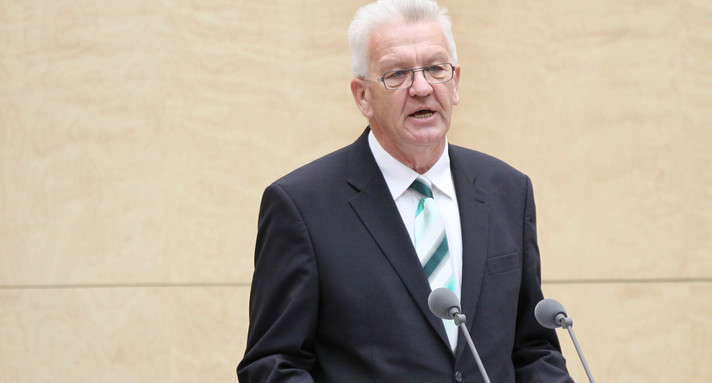Though the organ of the Bundesrat, the German States play a co-determining role in federal legislation and also in European affairs. Baden-Württemberg provides six of the 69 members making up the “Chamber of States” as the Bundesrat is also known. On November 2012 it was the turn of Baden-Württemberg’s Minister President Winfried Kretschmann to take over the role of President of the Bundesrat.
Germany is a Federation made up of 16 federal states. As the representation of the federal states, the Bundesrat acts in the capacity of an “upper house” within the constitution of the Federal Republic of Germany. Through this organ, the federal states play a role in shaping policy on the national level. This is regulated by article 50 of the Germany’s Basic Law, which stipulates that: “The Länder shall participate through the Bundesrat in the legislation and administration of the Federation and in matters concerning the European Union“. Consequently, they bear responsibility for their own interests and for the state as a whole both in the national and the European arena. In the same way as the statutory fundamental rights, this right on the part of the federal states is protected by what is known as the “perpetuity clause” set out in the Basic Law (Article 79 (3)).
Tasks of the Bundesrat
As one of Germany’s biggest federal states, like Bavaria, Lower Saxony and North Rhine Westphalia, Baden-Württemberg is entitled to cast six votes in the Bundesrat. A total of 69 representatives from the 16 states each have a seat in the Bundesrat. Each state is represented by members of its state government, which is why the Bundesrat is also known as the Chamber of States. The individual states may only cast their votes as a block.
The Bundesrat wields particular weight in Germany’s legislative procedure. No federal bills can be made law without the involvement of the Bundesrat. Many draft bills such as those appertaining to finance, the administrative sovereignty of the federal states or the Basic Law may only be validated with the express ratification of the Bundesrat. This type of bill is known as a consent bill. In the case of what are known as objection bills, the Bundesrat only has a right to table objections. The Bundesrat is also empowered to take the legislative initiative by introducing its own draft bills.
As the process of integration in Europe evolves, the influence exerted by the Bundesrat in European Union matters has grown. Its rights include a comprehensive entitlement to receive information, the right to submit statements of opinion on all drafts of European Union regulations affecting the interests of the federal states, and the right to delegate representatives to the Council of Ministers. The Bundesrat also elects half of the judges of the Constitutional Court in Karlsruhe.

